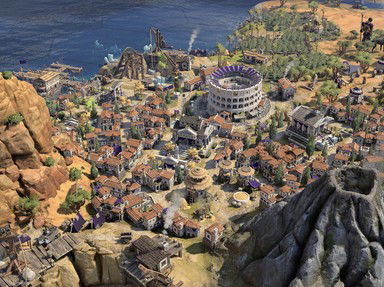Quiz Answer Key and Fun Facts
1. Unlike many other games (be it board games or video games), "Civilization VI" offers multiple Victory Conditions. Which of the following choices is *NOT* a Victory Condition in "Civilization VI"?
2. Several groups of people can be found in "Civilization VI". However, a player chooses one of the following types, the only type that can fulfil any victory conditions. Which of these is the only type of population that can obtain a victory?
3. "Civilization VI" has exploration as one of the main themes. Your first Settler starts at a certain tile on the map, and you can move around units to explore other tiles. Each tile has some attributes. Which of these is *NOT* an attribute of any tile?
4. "Civilization VI" starts in 4000 BC - unless you choose special settings to start in another Era . This means you have to research many Technologies and Civics . The Technology Tree lists all Technologies you can research, while the Civic Tree likewise lists Civics (ways to organize society and to focus on certain aspects thereof). What is the only Civic you can develop at the start of the game in 4000 BC?
5. One of the most difficult concepts to understand in "Civilization VI" has to do with happiness. In order to maintain the growth of a city, you need certain Amenities to keep the Citizens happy.
In the following list of buildings and improvements, which does *NOT* procure extra amenities?
6. In the standard rules, "Civilization VI" starts in the Ancient Era at 4000 BC. Players progress through different Eras as their Civilization gains Technologies and Civics. What is the final Era to reach?
7. An important notion of advancing in "Civilization VI" is the correct use of the Resources found in some tiles. There are three kinds of Resources . But which of the following four is *NOT* a valid Resource, but a figment of my imagination?
8. Most of the units and buildings you need, can be produced or trained using the normal city's Production. But you can also buy units or buildings with Gold or even with Faith. Indeed: many tiles in "Civilization VI" supply their owner each turn with some Gold and some Production, but some of them also with Faith, Science or Culture. Which of the following units can *ONLY* be bought with Faith?
9. "Civilization VI" allows you to build several Wonders , almost all with certain requirements as to their location. For instance, the Hanging Gardens need to be built on a tile with which requirement?
10. Great People are one of the most valuable assists to advancing in "Civilization VI". Which of these professions does *NOT* appear as a Great Person in the game?
Source: Author
JanIQ
This quiz was reviewed by FunTrivia editor
kyleisalive before going online.
Any errors found in FunTrivia content are routinely corrected through our feedback system.
